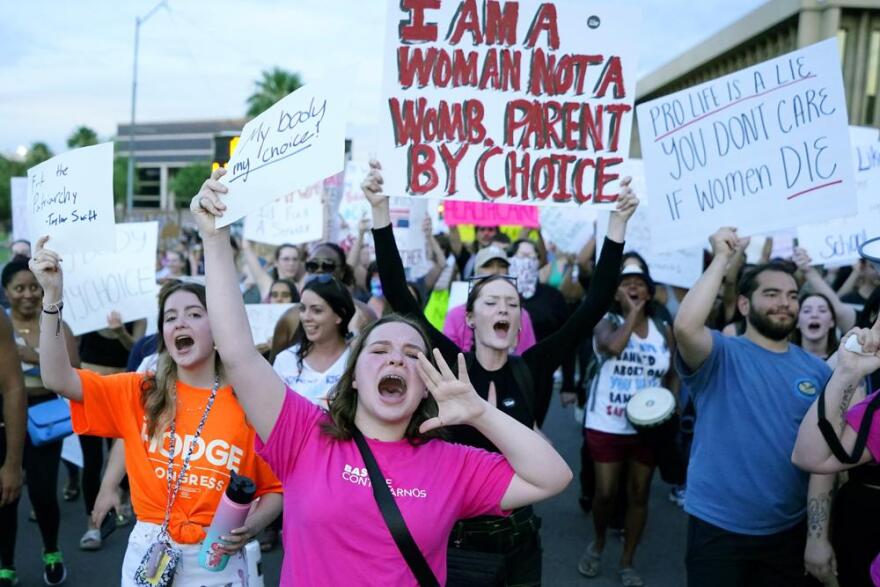Protests outside the Arizona Capitol over the U.S. Supreme Court’s decision to overturn Roe v. Wade that ended with a volley of tear gas are being described as either peaceful or driven by anarchists intent on destruction.
Republican Senate President Karen Fann issued a news release describing it as a thwarted insurrection, while protesters called it a violent overreaction by police who they said acted without warning or justification.
As many as 8,000 people gathered Friday night, most peacefully protesting the court decision.
But some began banging on the windows and glass doors of the state Senate.
State police say they believed they were trying to break in so they used tear gas. No arrests or injuries were reported.


